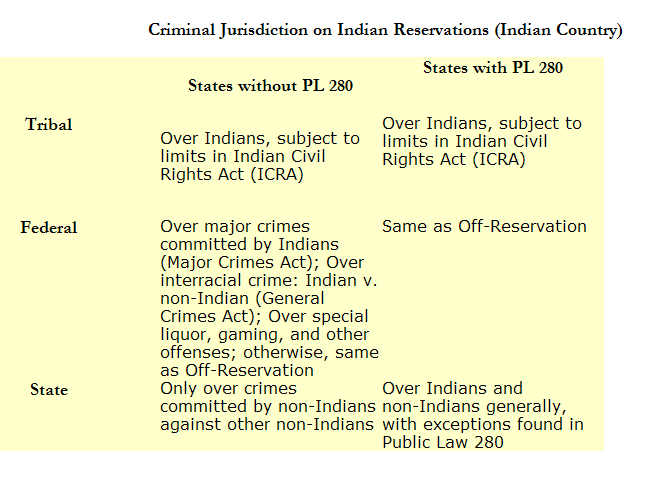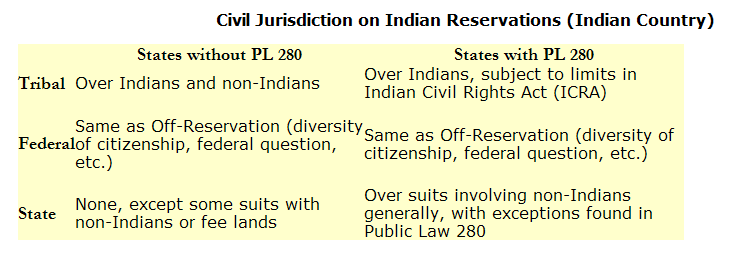| | | quote | Originally posted by twofatguys:
Different Nations have their own laws, and The Tribal lands are considered their own nations.
|
|
Although I might reach a different conclusion, I generally agree with the facts you presented above. Of course, I know nothing about the details of your personal experiences with tribal law. You
do have to make a clear distinction between criminal law and civil law, though.
Yes, Indian tribes exercise legal sovereignty over their tribal lands, but unlike most foreign countries tribal law is at least consistent with U.S. law. I grew up in Oklahoma, where there is a very large Indian population but there are no reservations, so tribal law isn't an issue there. I have spent a lot of time on tribal lands in New Mexico and Arizona over the past 20 years, though, and I have never had a problem with tribal law, tribal law enforcement, or tribal courts. As one example, I would just as soon appear before a judge on the Taos Indian reservation than I would to take my chances before the magistrate (justice of the peace) in the notorious speed-trap town of Questa, 25 miles to the north of Taos. In towns like Gallup, near the edge of several reservations, it's not unusual to see tribal and non-tribal police officers patrolling side by side, enforcing the same laws.
Edit: We both stand corrected somewhat. I found the following summaries of criminal and civil jurisdiction on tribal lands at
this link:


N.B. Public Law 280, passed in 1953 and amended in 1968, permits (but generally does not require) states to assume legal jurisdiction over Indian lands. Interestingly, several state constitutions actually prohibit those states from exercising legal jurisdiction over tribal lands within their borders.
[This message has been edited by Marvin McInnis (edited 02-04-2011).]




















